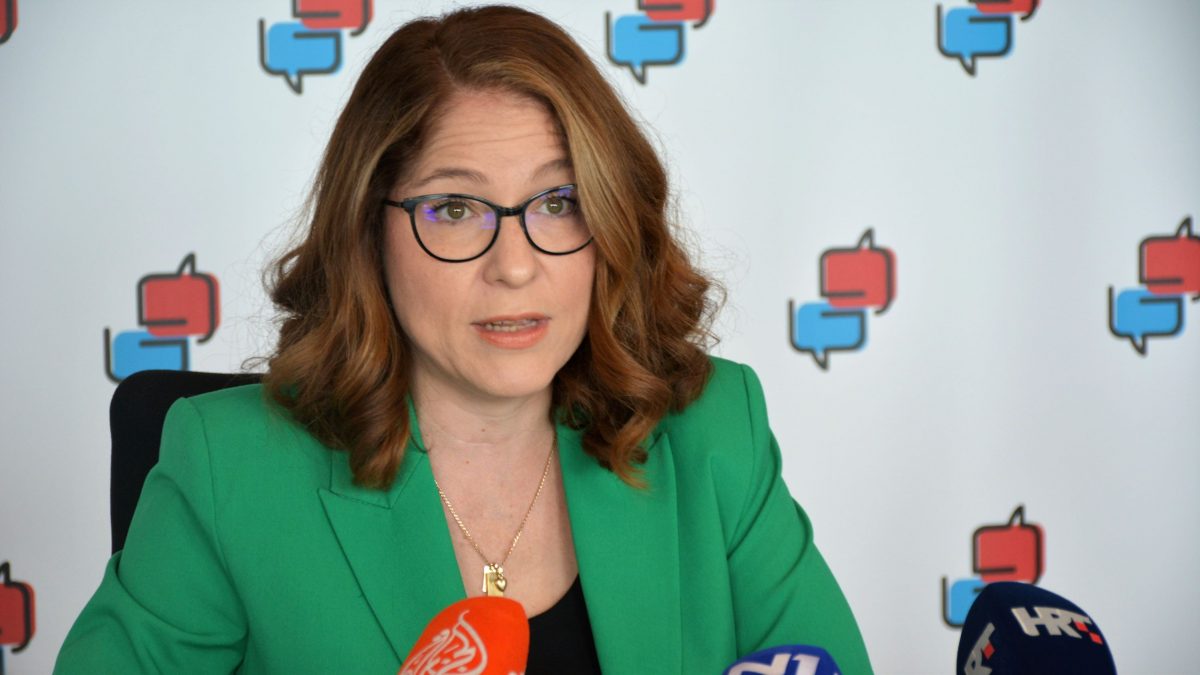The Ombudswoman Tena Šimonović Einwalter presented the 2022 Report of the Ombudswoman on Tuesday, describing it as an early warning of “cracks” in the network for protecting citizens’ constitutional and legal rights. The report is an analysis and monitoring of the state of human rights in Croatia, covering over 60 topics and subtopics, and includes a series of examples of citizens’ daily problems, as well as 170 recommendations for improvements.
 During 2022, citizens addressed the Ombudswoman the most frequently due to problems with the right to health, such as inadequate and untimely treatment, shortcomings in information provision, or inadequate communication between doctors and patients. She emphasized that the healthcare reform is still at the beginning and it is not clear exactly how much it will contribute to ensuring the right to health, i.e., ensuring that patients are in focus, and that working conditions in healthcare need to be improved. The report provides a series of recommendations to the Ministry of Health, including actions related to complaints handling and further measures to reduce still excessively long waiting lists.
During 2022, citizens addressed the Ombudswoman the most frequently due to problems with the right to health, such as inadequate and untimely treatment, shortcomings in information provision, or inadequate communication between doctors and patients. She emphasized that the healthcare reform is still at the beginning and it is not clear exactly how much it will contribute to ensuring the right to health, i.e., ensuring that patients are in focus, and that working conditions in healthcare need to be improved. The report provides a series of recommendations to the Ministry of Health, including actions related to complaints handling and further measures to reduce still excessively long waiting lists.
Complaints also indicate that institutions need to inform citizens more effectively about their rights and how to protect them, as well as to communicate with them more adequately – which is a matter of the right to good governance. The Ombudswoman warned that citizens do not always receive a response from the body they address, and the answers are often extremely formalistic or without a specific answer to the question. The problem also included the length of the proceedings of the institutions, mutual shifting of responsibility from one body to another, and insufficient exchange of information and cooperation between bodies.
The Ombudswoman also highlighted the problems of earthquake victims in 2022 – the too slow reconstruction, the lack of adequate communication with the affected persons, and the fact that containers have become long-term, instead of crisis accommodation. The recommendations include, among other things, speeding up work in reconstruction cases, clearly setting deadlines and scope of reconstruction and informing citizens about it, as well as creating materials with a clearly described reconstruction procedure.
 The report highlights that the poorest citizens in Croatia still do not receive adequate support from the social welfare system. Resources are insufficient, social services are unavailable, and employees are overwhelmed. Despite the increase in poverty, the number of recipients of guaranteed minimum income has significantly decreased from 39,000 in 2018 to 28,000 in 2022.
The report highlights that the poorest citizens in Croatia still do not receive adequate support from the social welfare system. Resources are insufficient, social services are unavailable, and employees are overwhelmed. Despite the increase in poverty, the number of recipients of guaranteed minimum income has significantly decreased from 39,000 in 2018 to 28,000 in 2022.
One in four people in Croatia is over 65 years old, and many seniors live alone without support, have serious problems meeting their basic needs due to higher living costs, and do not have access to social services such as home care or places in nursing homes. Additionally, they often require essential healthcare services. The number of elderly victims of domestic violence has increased significantly from 314 to 834 in misdemeanor proceedings, so efforts to combat violence against the older persons must be improved.


